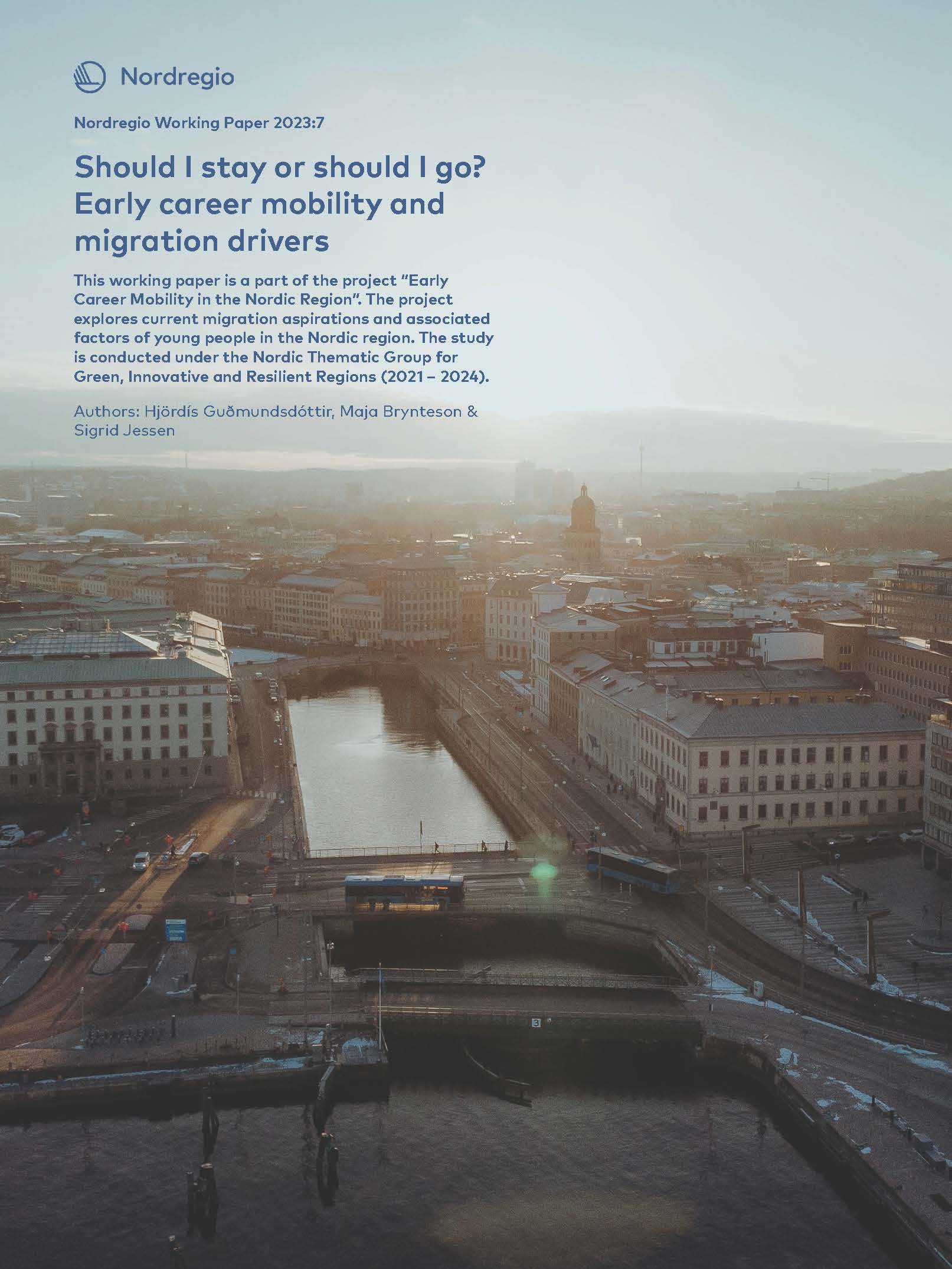This working paper is a part of the project “Early Career Mobility in the Nordic Region”. The project explores current migration aspirations and associated factors of young people in the Nordic region. The study is conducted under the Nordic Thematic Group for Green, Innovative and Resilient Regions (2021 – 2024).
Learning more about current migration drivers and migration aspirations of the early career cohorts in the Nordic countries will help policymakers to shape the future of Nordic labour markets and better prepare the future labour supply and demands in rural areas.
This working paper will present the main findings from previous studies on migration drivers and will serve as a baseline for the data collection on migration history and migration aspirations of young people in the Nordic countries.
The overall objective of Early Career Mobility in the Nordic Region is to develop a deeper knowledge of young people´s regional mobility and migration aspirations within the Nordic region.
The research will address and assess the following key research questions:
- What are the migration aspirations of 25-39-year-olds in the Nordic region?
- What are the characteristics of those who wish to move?
- What are the key drivers of intended migration?
- What can the Nordic countries and regions learn from each other in relation to internal migration?
The aim of the project is to understand recent and future developments in regional migration trends in the Nordic region, targeting the population cohorts aged 25 – 39 year olds, which we refer to as the household-creating ages. The project will put an emphasis on urban-to-rural migration, addressing cross-cutting themes such as gender and the Green Transition. The project will collect survey data on individuals in the household-creating ages in the Nordic region, exploring migration aspirations and factors associated with the wish to leave. Furthermore, there is a rising interest in understanding how digitalisation and remote work opportunities are influencing labour mobility and lifestyle decisions among the younger cohorts in the labour market, which this project also will shed light on.
Documenting migration aspirations can offer insights into migration forecasts and migration flows and the results can be used to adjust policies related to skills demand and population decline. Understanding the factors associated with the wish to leave (regardless of whether prospective migrants migrate or not) can help policymakers to identify the strengths and weaknesses of their communities, and young people´s priorities when choosing where to settle down.









